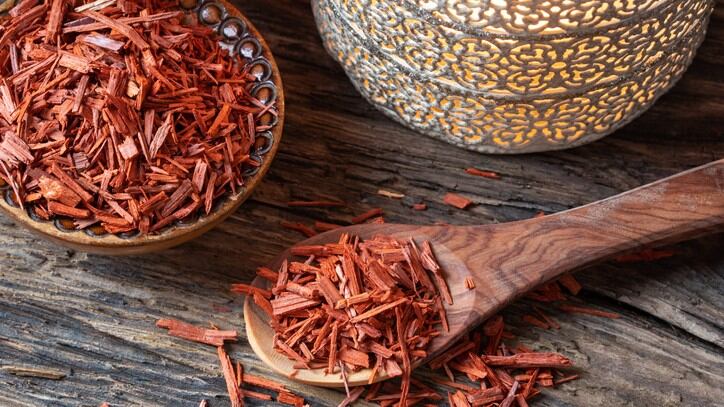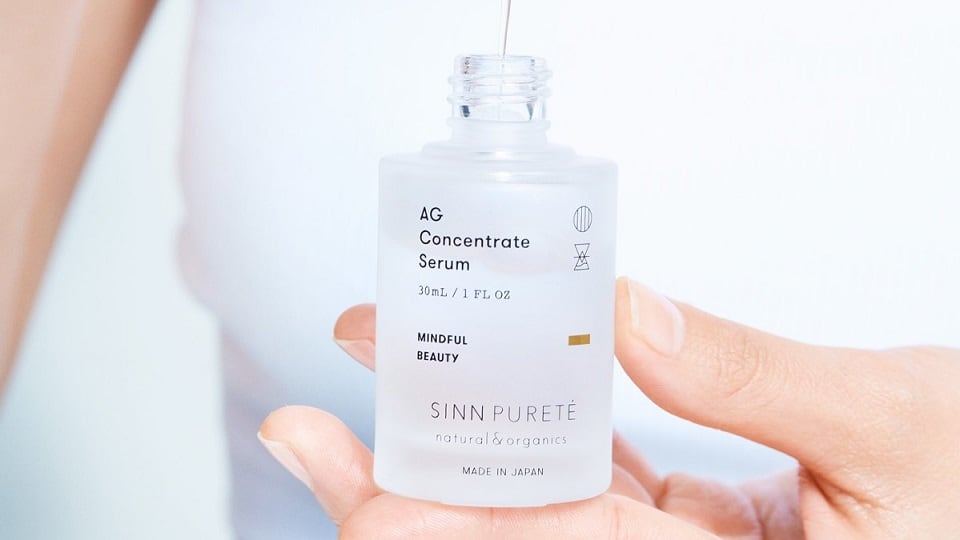1 – ‘A shift is happening’: Why brands that emphasise scientific accuracy will displace clean beauty firms – 5 to 5
The founders of a newly launched skin care brand 5 to 5 is expecting the clean beauty trend to decline in the coming years and be replaced by brands that are based on solid science.
5 to 5 was co-founded by Nico Yosman and Selvie Jusman, who both have a background in finance.
Launched in June, the Singapore-based brand’s philosophy is that everything it does “from product development to marketing communication” should be “rooted in science”.
Yosman and Jusman believe that the information clean beauty brands tend to market, such as a fear of certain ingredients, is contributing to its downfall.
2 – Smart skin: Amorepacific to use wearable device to develop cosmetics for specific environmental needs
South Korean cosmetics firm Amorepacific said it intends to use the sweat-proof wearable skin measurement device it developed with MIT to produce cosmetic products according to environmental needs.
Amorepacific announced in June that it had collaborated with Massachusetts Institute of Technology (MIT) to develop a wearable skin measuring device.
The film-like and stretchable patch is embedded with a flexible sensor. It can be stuck on the skin and used to measure the skin condition for a long period of time, withstanding sweat and remaining comfortable for the user.
“Efforts to measure the condition of human skin more precisely and stably have been carried out in various fields. However, the skin is naturally affected by various external environmental changes such as sweat, and thus, it was difficult to maintain measurement and observe changes without interruption,” said Han Jiyeon, a scientist from the Amorepacific R&D centre clinical research lab.
3 – Personalisation and skin microbiome: S. Korea’s Cosmax to develop AI-powered platform
South Korean ODM giant Cosmax is set to develop an AI-powered platform that will help both its customers and end-consumers get personalised information about the skin microbiome.
CosmeticsDesign-Asia has learnt that the commercial platform would map out its specialised technology by factors such as efficacy to aid developers in producing skin microbiome products.
To build up the system, the company has collected skin microbiome information from over 1,000 people to date and analysed the statistical significance between them.
Furthermore, the company is planning to develop a consumer-based personal skin microbiome platform as well to provide “high-quality value” to consumers.
4 – Freshness first: Korean start-up Kuoca aims to lead the market with novel made-to-order concept
A beauty company specialising in made-to-order skin care inspired by fine cuisine believes fresh beauty, products that are made-to-order in small batch production, will be the next trend to follow the clean movement.
Kuoca is a South Korean beauty start-up founded by Benjamin Yu and Jisu Kim. The firm debuted in 2014 as a made-to-order skin care brand catering to Korean ‘celebrities and VIPs’ before launching to a wider audience in 2019.
Inspired by concepts of fine cuisine, Kuoca emphasises the freshness of its formulations. The products are made-to-order in small-batch productions and contain ingredients like truffles and chaga mushrooms.
All products are made within 30 days of sale to maintain freshness and perform best within 18 months after opening, said the firm.
5 – Scalp care microbiome-friendly Gallinée shampoo proves anti-dandruff properties using prebiotics, postbiotics
The anti-dandruff hair care category has long focused on antibacterial formulations, but microbiome-friendly blends that promote scalp bacteria balance may be as effective, says the founder of French indie brand Gallinée.
The skin microbiome specialist recently completed a small-scale clinical study on its Soothing Cleansing Cream scalp care shampoo product after widespread consumer feedback suggested it helped prevent dandruff – beyond its design to soothe scalp irritation and strengthen hair.
Initially formulated to help balance the scalp microbiome, the product contained a high concentration of Gallinée’s patented prebiotic and postbiotic complex that had now proven efficient in reducing dandruff. Results from the clinical study showed that, over a four-week period, use of the Gallinée shampoo reduced the number and size of dandruff flakes, leading to an overall 60% reduction in dandruff.
“What I like about Gallinée is we are discovering new indications for existing products,” said Marie Drago, founder of Gallinée. “It’s the pharmacist in me that really likes to do that: discover new indications,” Drago told CosmeticsDesign-Europe.





